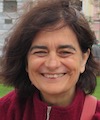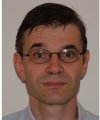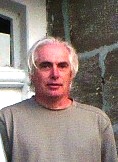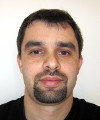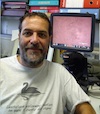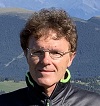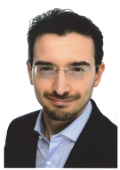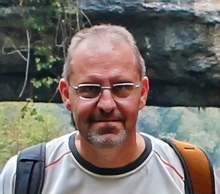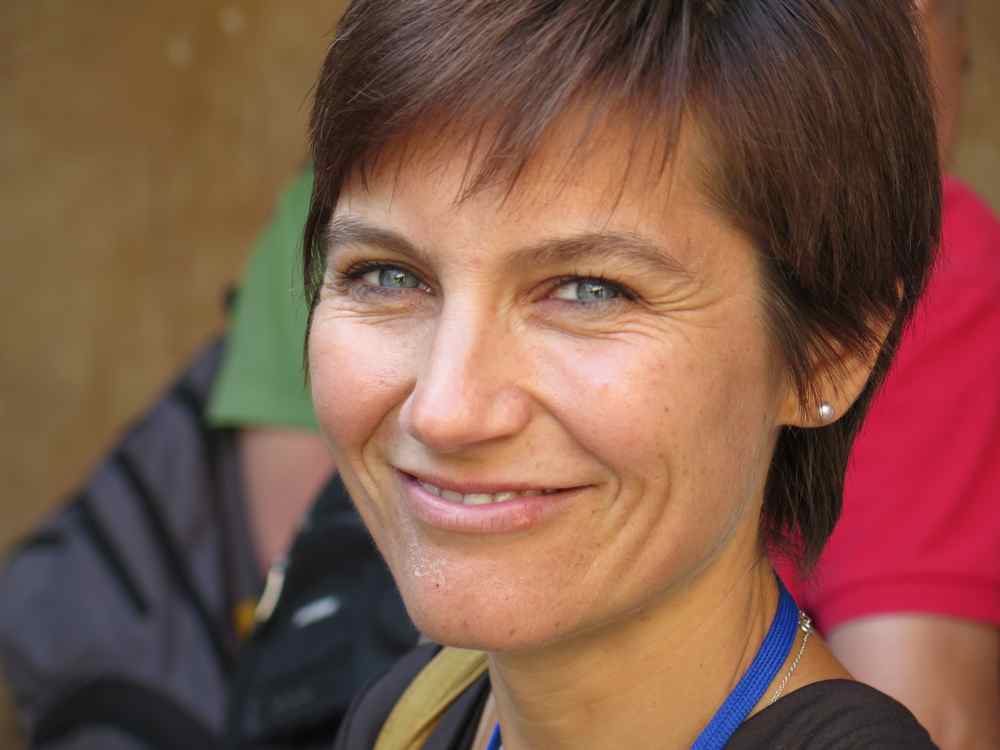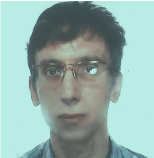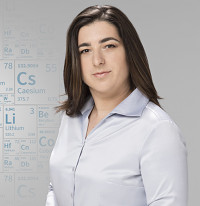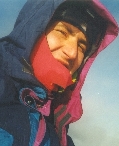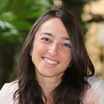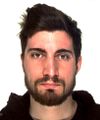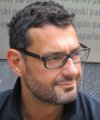Studying at the University of Verona
Here you can find information on the organisational aspects of the Programme, lecture timetables, learning activities and useful contact details for your time at the University, from enrolment to graduation.
Academic calendar
The academic calendar shows the deadlines and scheduled events that are relevant to students, teaching and technical-administrative staff of the University. Public holidays and University closures are also indicated. The academic year normally begins on 1 October each year and ends on 30 September of the following year.
Course calendar
The Academic Calendar sets out the degree programme lecture and exam timetables, as well as the relevant university closure dates..
| Period | From | To |
|---|---|---|
| Primo semestre | Oct 4, 2021 | Jan 28, 2022 |
| Secondo semestre | Mar 7, 2022 | Jun 10, 2022 |
| Session | From | To |
|---|---|---|
| Sessione invernale d'esame | Jan 31, 2022 | Mar 4, 2022 |
| Sessione estiva d'esame | Jun 13, 2022 | Jul 29, 2022 |
| Sessione autunnale d'esame | Sep 1, 2022 | Sep 30, 2022 |
| Session | From | To |
|---|---|---|
| Sessione estiva di laurea | Jul 21, 2022 | Jul 21, 2022 |
| Sessione autunnale di laurea | Oct 13, 2022 | Oct 13, 2022 |
| Sessione autunnale di laurea - dicembre | Dec 7, 2022 | Dec 7, 2022 |
| Sessione invernale | Mar 16, 2023 | Mar 16, 2023 |
| Period | From | To |
|---|---|---|
| Festa di Tutti i Santi | Nov 1, 2021 | Nov 1, 2021 |
| Festa dell'Immacolata Concezione | Dec 8, 2021 | Dec 8, 2021 |
| Festività natalizie | Dec 24, 2021 | Jan 2, 2022 |
| VACANZE DI PASQUA | Apr 15, 2022 | Apr 19, 2022 |
| FESTA DEL LAVORO | May 1, 2022 | May 1, 2022 |
| Festa di San Zeno - S. Patrono di Verona | May 21, 2022 | May 21, 2022 |
| Festa della Repubblica | Jun 2, 2022 | Jun 2, 2022 |
| Chiusura estiva | Aug 15, 2022 | Aug 20, 2022 |
Exam calendar
Exam dates and rounds are managed by the relevant Science and Engineering Teaching and Student Services Unit.
To view all the exam sessions available, please use the Exam dashboard on ESSE3.
If you forgot your login details or have problems logging in, please contact the relevant IT HelpDesk, or check the login details recovery web page.
Should you have any doubts or questions, please check the Enrollment FAQs
Academic staff
 rosanna.laking@univr.it
rosanna.laking@univr.it

Mazzuoccolo Giuseppe
 giuseppe.mazzuoccolo@univr.it
giuseppe.mazzuoccolo@univr.it
 +39 0458027838
+39 0458027838
 chiara.nardon@univr.it
chiara.nardon@univr.it
 daniela.pianezzi@univr.it
daniela.pianezzi@univr.it
 claudio.tomazzoli@univr.it
claudio.tomazzoli@univr.it
 franco.zivcovich@univr.it
franco.zivcovich@univr.it
 simone.zuccher@univr.it
simone.zuccher@univr.it
Study Plan
The Study Plan includes all modules, teaching and learning activities that each student will need to undertake during their time at the University.
Please select your Study Plan based on your enrollment year.
1° Year
| Modules | Credits | TAF | SSD |
|---|
2° Year activated in the A.Y. 2022/2023
| Modules | Credits | TAF | SSD |
|---|
3° Year activated in the A.Y. 2023/2024
| Modules | Credits | TAF | SSD |
|---|
| Modules | Credits | TAF | SSD |
|---|
| Modules | Credits | TAF | SSD |
|---|
| Modules | Credits | TAF | SSD |
|---|
| Modules | Credits | TAF | SSD |
|---|
Legend | Type of training activity (TTA)
TAF (Type of Educational Activity) All courses and activities are classified into different types of educational activities, indicated by a letter.
Dynamical Systems (2022/2023)
Teaching code
4S00244
Credits
6
Coordinator
Not yet assigned
Language
Italian
Scientific Disciplinary Sector (SSD)
MAT/05 - MATHEMATICAL ANALYSIS
The teaching is organized as follows:
Teoria 1
Credits
5
Period
Semester 2
Academic staff
Giacomo Canevari
Esercitazioni di teoria 1
Credits
1
Period
Semester 2
Academic staff
Giacomo Canevari
Learning objectives
The aim of the course is to introduce the theory and some applications of dynamical systems, which describe the time evolution of quantitative variables. By the end of the course, the students will be able to investigate the stability and the character of an equilibrium, the qualitative analysis of a system of ordinary differential equations, the phase portrait of a (parametric) dynamical system in dimension 1 and 2, and to analyse finite-dimensional Hamiltonian systems. Moreover, the students will be able to study some basic applications of dynamical systems arising from population dynamics, mechanics and traffic flows. Finally, students will be also able to produce proofs using the typical tools of modern dynamical systems and will be able to read and report specific books and articles on dynamical systems and related applications.
Program
Part I
1. Topics in the theory of ordinary differential equations
Qualitative analysis of ODE: existence and uniqueness of solutions; maximal and global solutions; Gronwall’s Lemma; continuous dependence on the initial data.
2. Vector fields and ordinary differential equations
Vector fields: phase space, integral curves, orbits, equilibria, phase portrait. 1-dimensional examples of phase portraits. Second-order systems of differential equations; phase-space analysis and equilibria.
3. Linear systems
Linearisation of a vector field about an equilibrium. Classification of two-dimensional linear systems (over the real numbers) that are diagonalisable over the complex numbers. (If time permits, we will briefly discuss the nilpotent case as well.) n-dimensional linear systems: invariant subspace decomposition; the stable, unstable and central subspaces. Comparing a vector field with its linearisation about a hyperbolic equilibrium.
4. Flow of a vector field
Flow of a vector field. Change of coordinates: conjugate vector fields; pull-back and push-forward of a vector field by a diffeomorphism. Non-autonomous differential equations: time-dependent change of coordinates; scaling of vector fields and time reparametrisations. The local rectification theorem.
5. First integrals
Invariant sets; first integrals; Lie derivative. Invariant foliations; reduction of the order. First integrals and attractive equilibria.
6. Stability theory
Stability 'à la Lyapunov' of an equilibrium; the method of Lyapunov functions; the spectral method. Applications and examples.
7. 1-dimensional Newton equation.
Phase portraits of the 1-dimensional Newton equation, in the conservative case. Linearisation. Reduction of the order. Systems with friction.
Part II
8. Bifurcations
Bifurcatios from equilibria, with 1-dimensional examples; applications.
9. Introduction to the 1-dimensional Calculus of Variations
The indirect method for one-dimensional integral functionals. Necessary conditions for the existence of minimisers: the Euler-Lagrange equations. Jacobi integral; conservation laws. Geodesics on a surface.
10. Hamiltonian systems
Hamiltonian vector fields. Legendre transform. Poisson brackets. Canonical transformations. Lie conditions, generating functions. The Hamilton-Jacobi equations. Integrability. Geometry of the phase space: Liouville's theorem and Poincaré's recurrence theorem.
Learning assessment procedures
The exam consists of two parts: a written part, and an oral one.
The written part consists of exercises - for instance, qualitative analysis of an ordinary differential equation; explicit solution of an ordinary differential equation; phase portrait of a two-dimensional, non-linear system; stability of equilibria; change of coordinates; first integrals; bifurcations; Hamiltonian systems and canonical transformations...
The written part tests the following learning outcomes:
- To have adequate analytical skills;
- To have adequate computational skills;
- To be able to translate problems from natural language to mathematical formulations;
- To be able to define and develop mathematical models for physics and natural sciences.
The oral part consists of 3 questions. The oral part is compulsory and must be completed within the same session as the written part.
The oral exam tests the following learning outcomes:
- To be able to present precise proofs and recognise them.
According to the pandemic situation the structure of the exam may vary.
Type D and Type F activities
Le attività formative di tipologia D sono a scelta dello studente, quelle di tipologia F sono ulteriori conoscenze utili all’inserimento nel mondo del lavoro (tirocini, competenze trasversali, project works, ecc.). In base al Regolamento Didattico del Corso, alcune attività possono essere scelte e inserite autonomamente a libretto, altre devono essere approvate da apposita commissione per verificarne la coerenza con il piano di studio. Le attività formative di tipologia D o F possono essere ricoperte dalle seguenti attività.
1. Insegnamenti impartiti presso l'Università di Verona
Comprendono gli insegnamenti sotto riportati e/o nel Catalogo degli insegnamenti (che può essere filtrato anche per lingua di erogazione tramite la Ricerca avanzata).
Modalità di inserimento a libretto: se l'insegnamento è compreso tra quelli sottoelencati, lo studente può inserirlo autonomamente durante il periodo in cui il piano di studi è aperto; in caso contrario, lo studente deve fare richiesta alla Segreteria, inviando a carriere.scienze@ateneo.univr.it il modulo nel periodo indicato.
2. Attestato o equipollenza linguistica CLA
Oltre a quelle richieste dal piano di studi, per gli immatricolati dall'A.A. 2021/2022 vengono riconosciute:
- Lingua inglese: vengono riconosciuti 3 CFU per ogni livello di competenza superiore a quello richiesto dal corso di studio (se non già riconosciuto nel ciclo di studi precedente).
- Altre lingue e italiano per stranieri: vengono riconosciuti 3 CFU per ogni livello di competenza a partire da A2 (se non già riconosciuto nel ciclo di studi precedente).
Tali cfu saranno riconosciuti, fino ad un massimo di 6 cfu complessivi, di tipologia F se il piano didattico lo consente, oppure di tipologia D. Ulteriori crediti a scelta per conoscenze linguistiche potranno essere riconosciuti solo se coerenti con il progetto formativo dello studente e se adeguatamente motivati.
Gli immatricolati fino all'A.A. 2020/2021 devono consultare le informazioni che si trovano qui.
Modalità di inserimento a libretto: richiedere l’attestato o l'equipollenza al CLA e inviarlo alla Segreteria Studenti - Carriere per l’inserimento dell’esame in carriera, tramite mail: carriere.scienze@ateneo.univr.it
3. Competenze trasversali
Scopri i percorsi formativi promossi dal TALC - Teaching and learning center dell'Ateneo, destinati agli studenti regolarmente iscritti all'anno accademico di erogazione del corso https://talc.univr.it/it/competenze-trasversali
Modalità di inserimento a libretto: non è previsto l'inserimento dell'insegnamento nel piano di studi. Solo in seguito all'ottenimento dell'Open Badge verranno automaticamente convalidati i CFU a libretto. La registrazione dei CFU in carriera non è istantanea, ma ci saranno da attendere dei tempi tecnici.
4. Periodo di stage/tirocinio
Oltre ai CFU previsti dal piano di studi (verificare attentamente quanto indicato sul Regolamento Didattico): qui informazioni su come attivare lo stage.
Insegnamenti e altre attività che si possono inserire autonomamente a libretto
Documents and news
-
 Modifiche al piano di studi (.doc)
(octet-stream, it, 1314 KB, 30/06/21)
Modifiche al piano di studi (.doc)
(octet-stream, it, 1314 KB, 30/06/21)
| years | Modules | TAF | Teacher |
|---|---|---|---|
| 1° 2° 3° | Algorithms | D |
Roberto Segala
(Coordinator)
|
| 1° 2° 3° | Basis of general chemistry | D |
Chiara Nardon
|
| 1° 2° 3° | Genetics | D |
Massimo Delledonne
(Coordinator)
|
| years | Modules | TAF | Teacher |
|---|---|---|---|
| 1° 2° 3° | Algorithms | D |
Roberto Segala
(Coordinator)
|
| 1° 2° 3° | LaTeX Language | D |
Enrico Gregorio
(Coordinator)
|
| 1° 2° 3° | Organization Studies | D |
Serena Cubico
(Coordinator)
|
| 1° 2° 3° | History and Didactics of Geology | D |
Guido Gonzato
(Coordinator)
|
| years | Modules | TAF | Teacher | |
|---|---|---|---|---|
| 1° | Subject requirements: mathematics | D |
Franco Zivcovich
|
|
| 1° 2° 3° | ECMI modelling week | F | Not yet assigned | |
| 1° 2° 3° | ESA Summer of code in space (SOCIS) | F | Not yet assigned | |
| 1° 2° 3° | Google summer of code (GSOC) | F | Not yet assigned | |
| 1° 2° 3° | Python programming language | D |
Giulio Mazzi
(Coordinator)
|
|
Career prospects
Module/Programme news
News for students
There you will find information, resources and services useful during your time at the University (Student’s exam record, your study plan on ESSE3, Distance Learning courses, university email account, office forms, administrative procedures, etc.). You can log into MyUnivr with your GIA login details: only in this way will you be able to receive notification of all the notices from your teachers and your secretariat via email and soon also via the Univr app.
Graduation
Documents
| Title | Info File |
|---|---|
|
|
pdf, it, 31 KB, 29/07/21 |
|
|
pdf, it, 31 KB, 29/07/21 |
|
|
pdf, it, 171 KB, 20/03/24 |
List of theses and work experience proposals
| theses proposals | Research area |
|---|---|
| Formule di rappresentazione per gradienti generalizzati | Mathematics - Analysis |
| Formule di rappresentazione per gradienti generalizzati | Mathematics - Mathematics |
| Proposte Tesi A. Gnoatto | Various topics |
| Mathematics Bachelor and Master thesis titles | Various topics |
| THESIS_1: Sensors and Actuators for Applications in Micro-Robotics and Robotic Surgery | Various topics |
| THESIS_2: Force Feedback and Haptics in the Da Vinci Robot: study, analysis, and future perspectives | Various topics |
| THESIS_3: Cable-Driven Systems in the Da Vinci Robotic Tools: study, analysis and optimization | Various topics |
| Stage | Research area |
|---|---|
| Internship proposals for students in mathematics | Various topics |
Attendance
As stated in the Teaching Regulations for the A.Y. 2022/2023, except for specific practical or lab activities, attendance is not mandatory. Regarding these activities, please see the web page of each module for information on the number of hours that must be attended on-site.
Career management
Student login and resources
Erasmus+ and other experiences abroad
Commissione tutor
La commissione ha il compito di guidare le studentesse e gli studenti durante l'intero percorso di studi, di orientarli nella scelta dei percorsi formativi, di renderli attivamente partecipi del processo formativo e di contribuire al superamento di eventuali difficoltà individuali.
E' composta dai proff. Sisto Baldo, Marco Caliari, Francesca Mantese, Giandomenico Orlandi e Nicola Sansonetto

